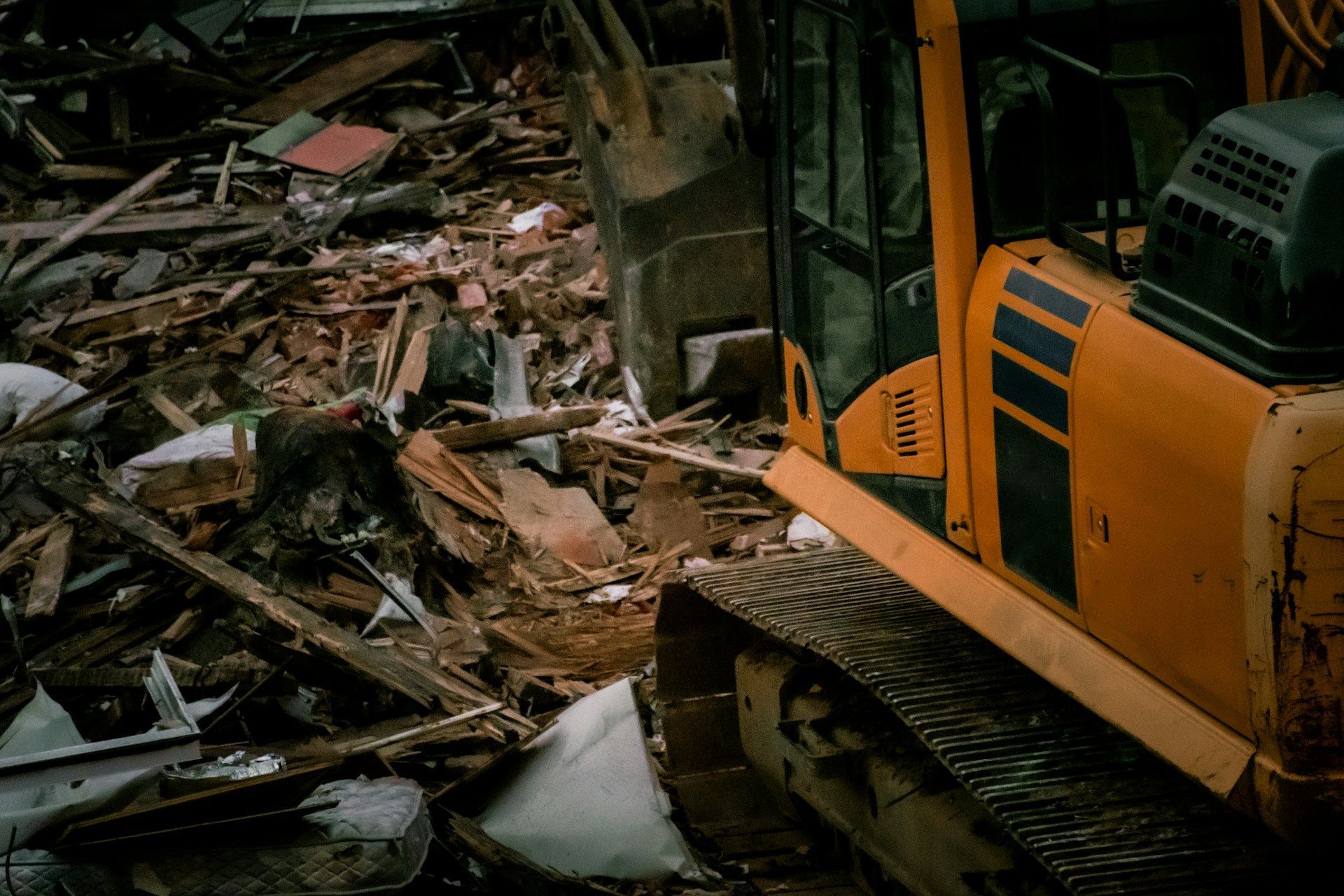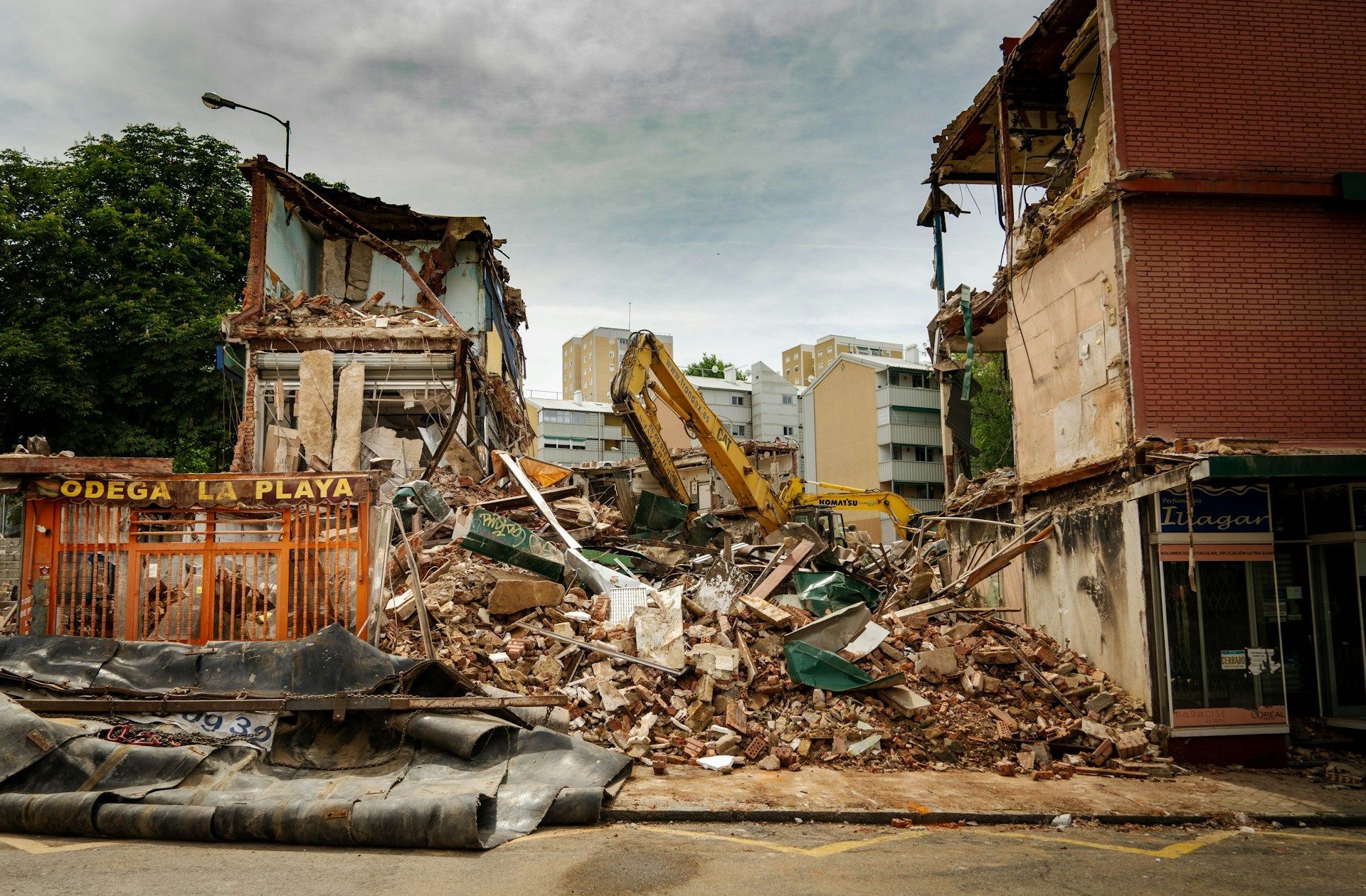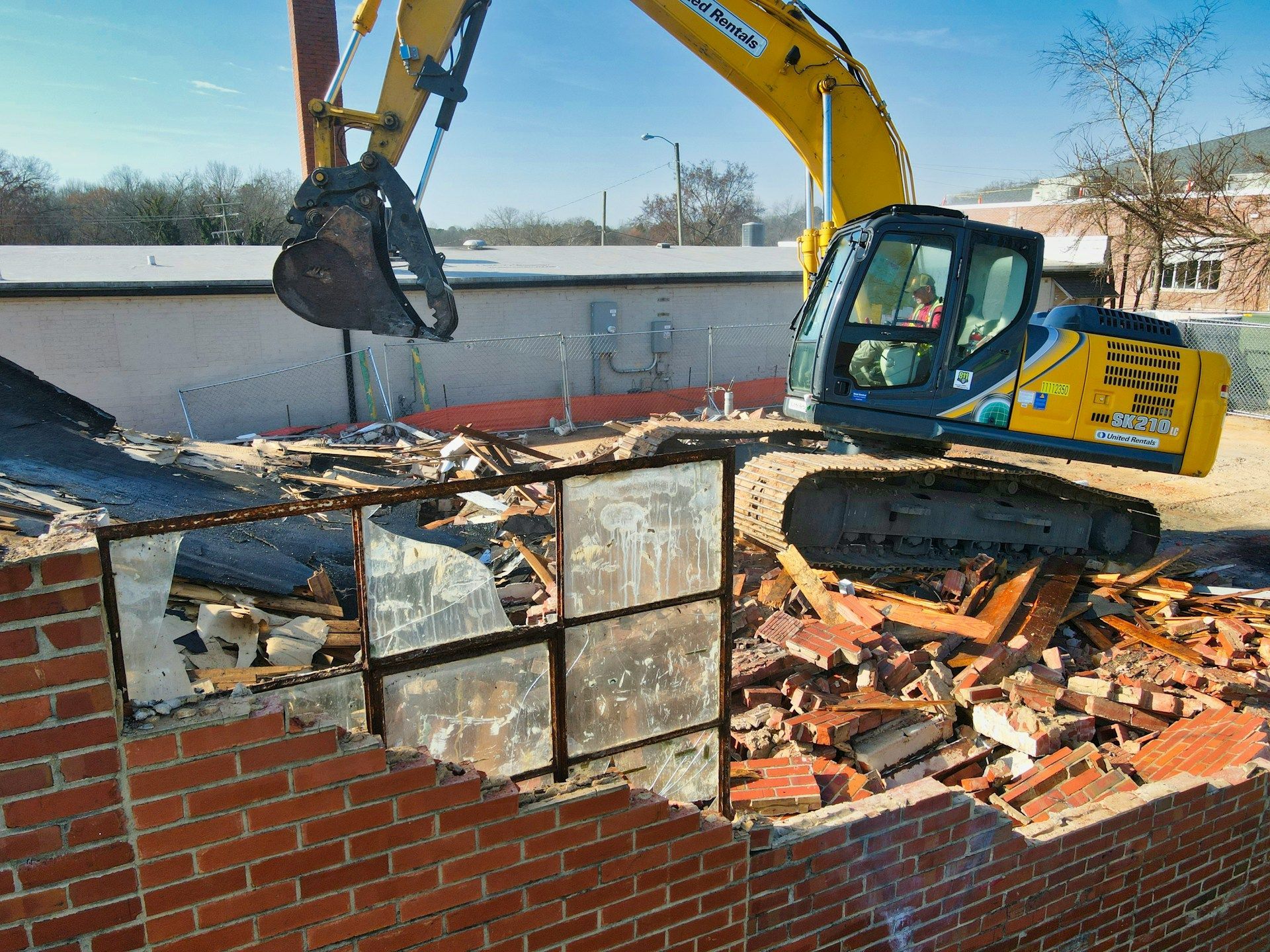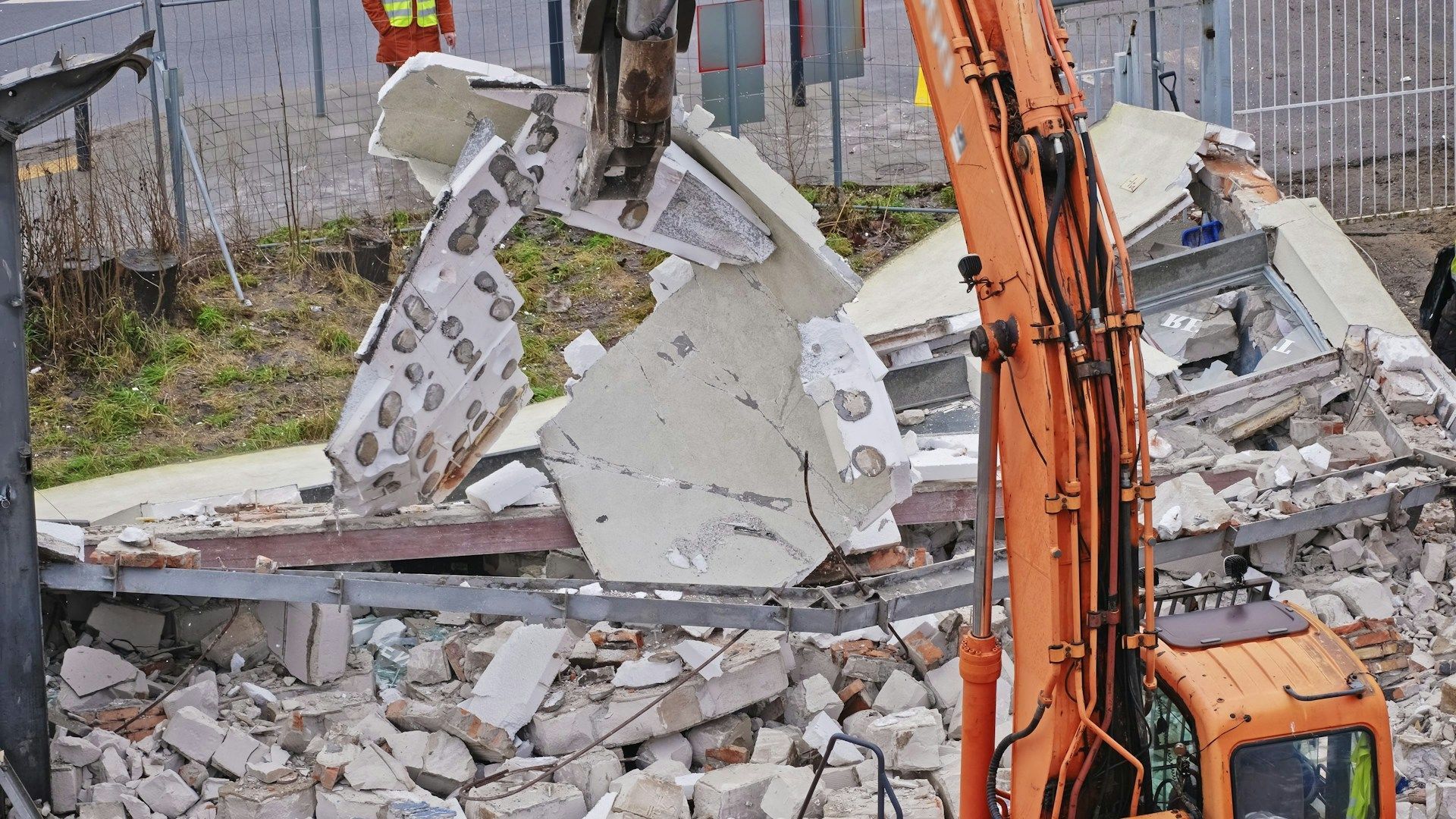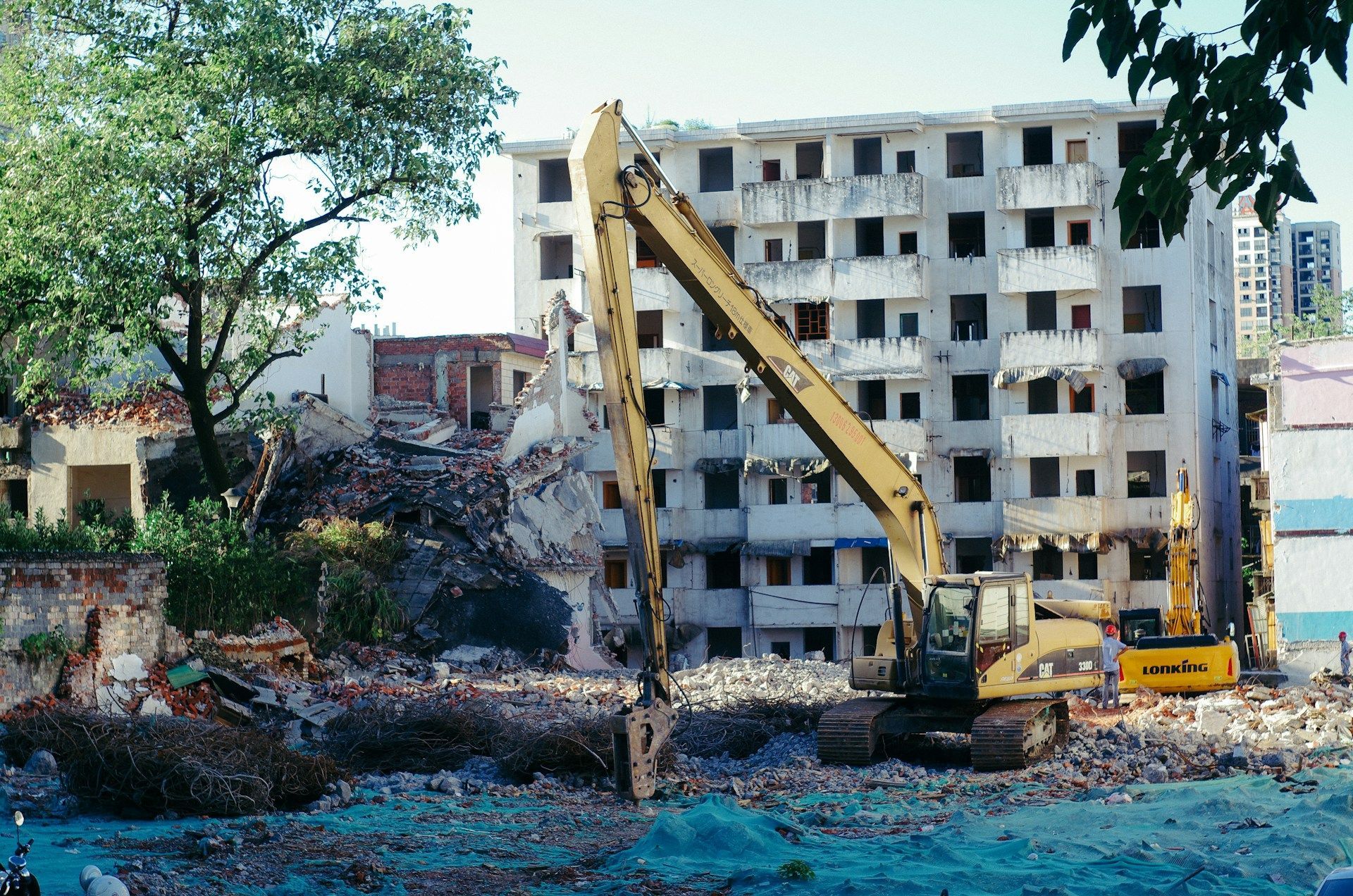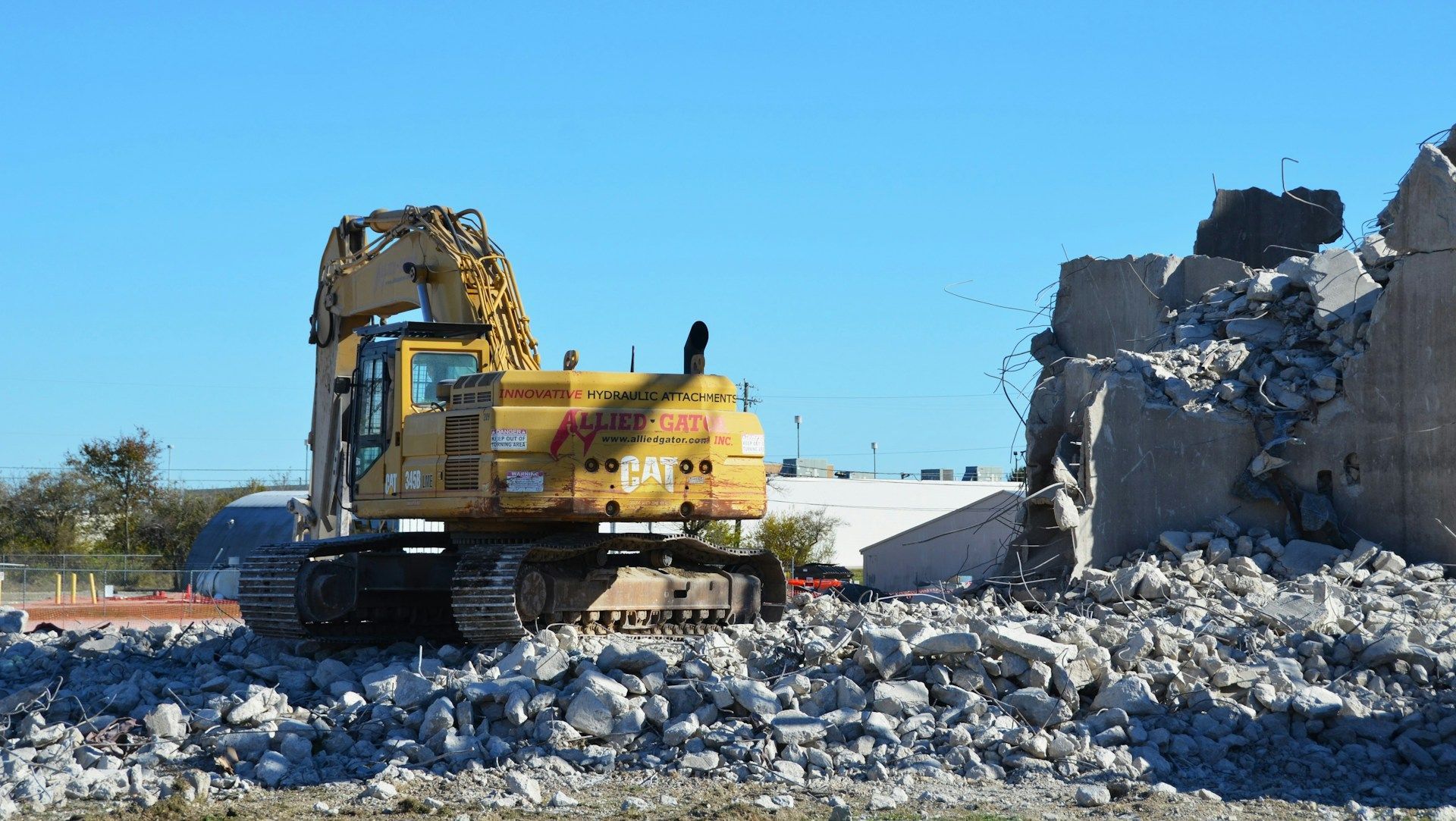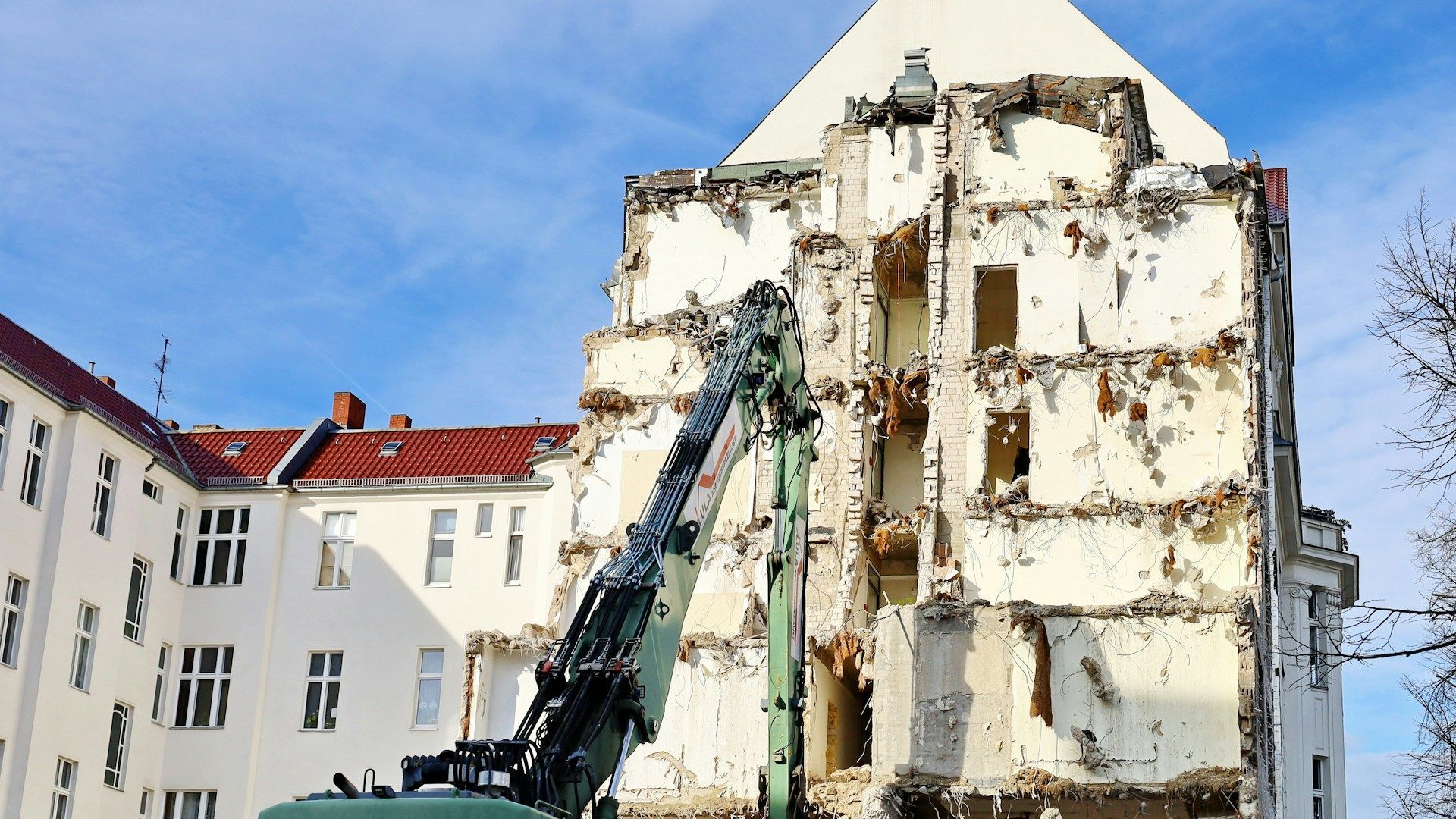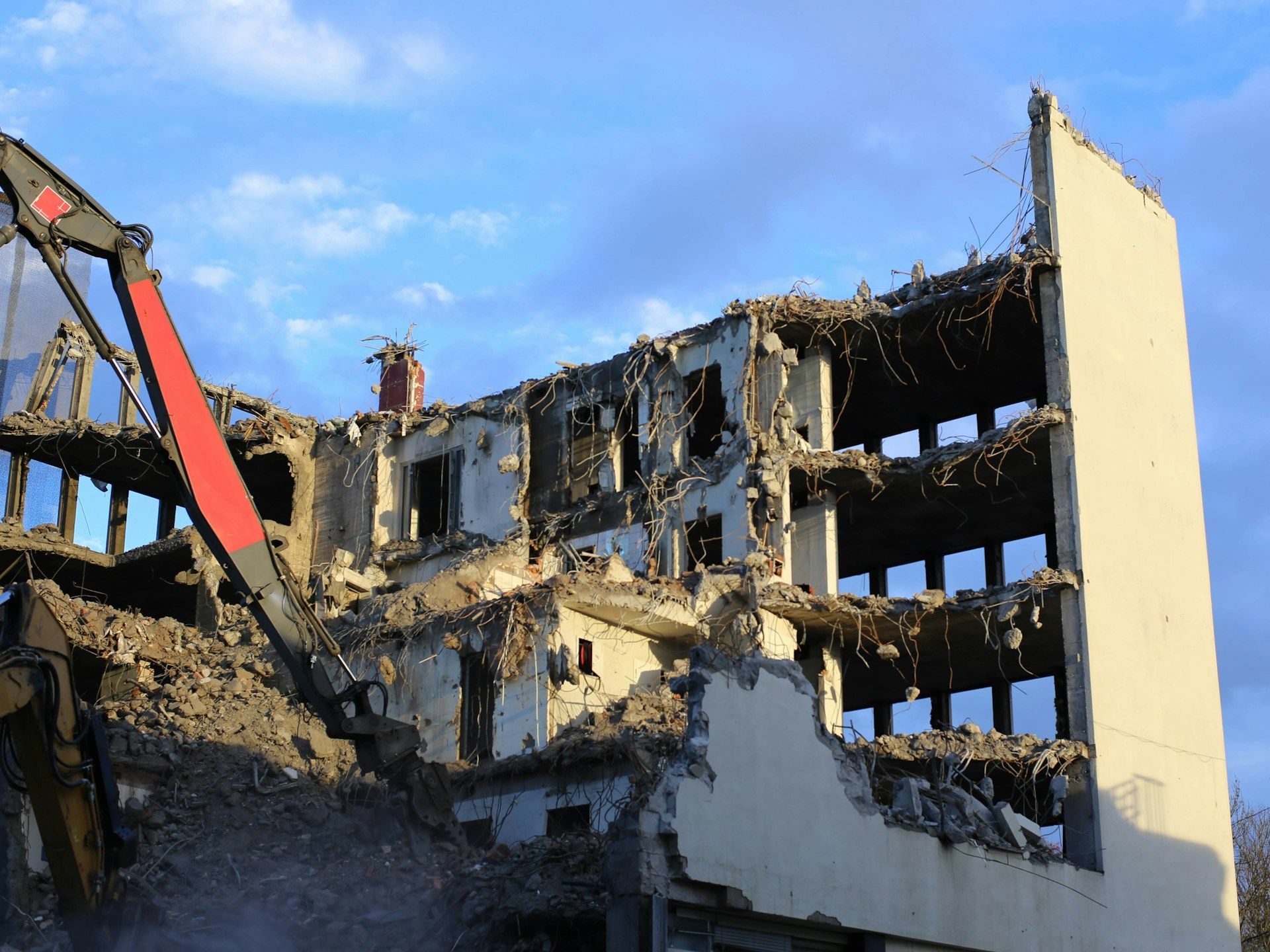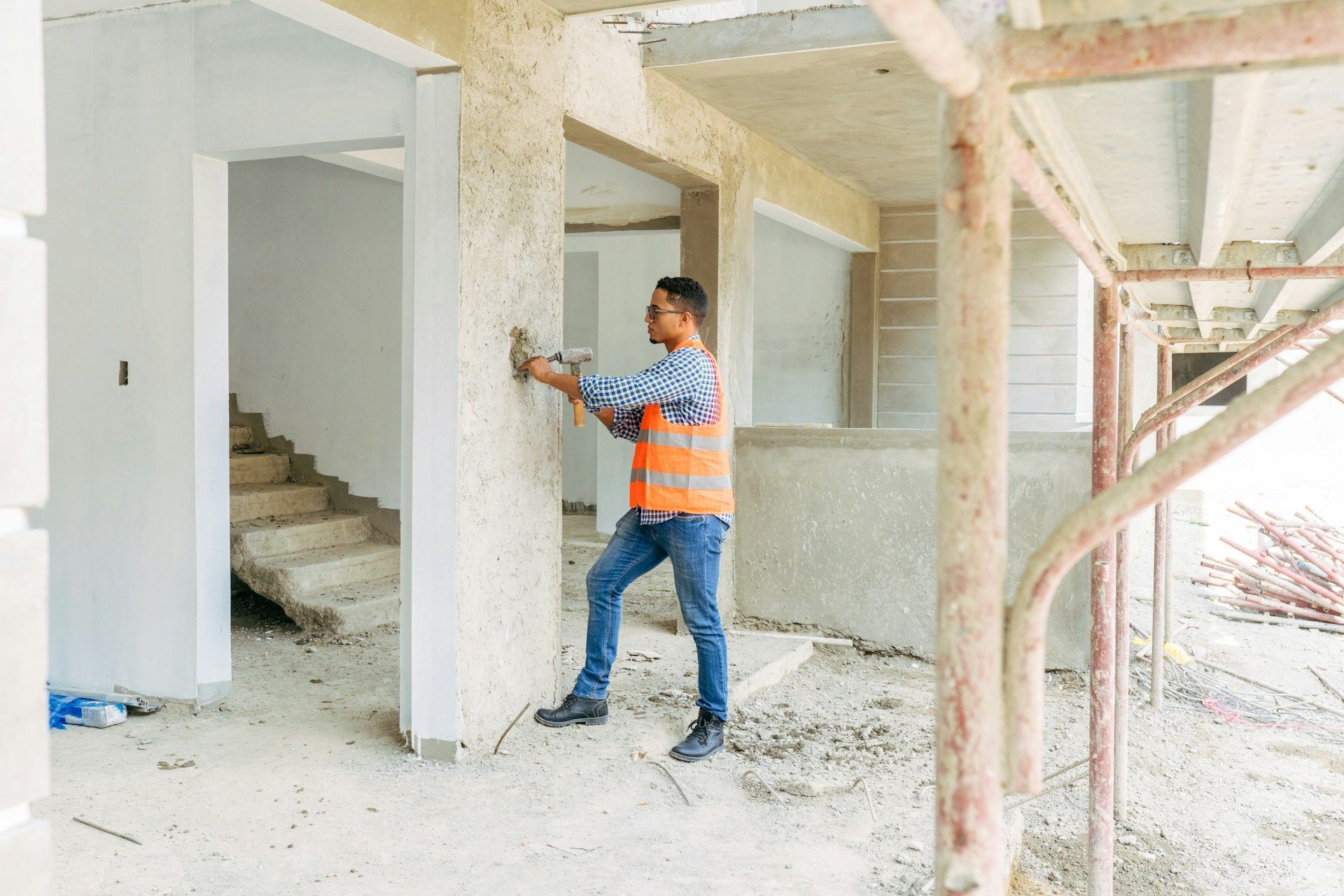Fall Preparation: Why September is the Perfect Time for Commercial Demolition Projects
When is the best time to start a commercial demolition project? If you're planning a commercial demolition in Kansas City, September offers the ideal window for launching your project. With Kansas City experiencing above-normal temperatures in September before turning near-normal in October and below-normal precipitation, fall provides optimal conditions for commercial demolition work.
When is the best time to start a commercial demolition project?
September through November represents the sweet spot for commercial demolition projects in Kansas City. Fall stands out as the ideal season to start construction projects when you want to secure the best possible contractors and keep costs down. Unlike spring's peak construction rush or summer's extreme heat, fall offers a perfect balance of favorable weather and contractor availability that smart developers leverage for maximum project success.
Weather Advantages of Fall Demolition in Kansas City
Kansas City's fall weather creates nearly perfect conditions for commercial demolition work. September temperatures typically fluctuate between comfortable lows of 60° and manageable highs of 80°, while October sees even more moderate conditions with highs around 68° and lows near 48°. These stable temperatures mean demolition crews can work efficiently without the safety concerns that come with extreme heat or bitter cold. Perhaps more importantly, Kansas City receives significantly less precipitation during fall months. September averages about 4.5 inches of rain, October sees roughly 3.16 inches, and November drops to just 2.15 inches. This predictable, lower rainfall pattern means fewer weather-related delays and more consistent project timelines. The extended daylight hours compared to winter months also allow for longer productive work days, maximizing efficiency and keeping projects on schedule. The seasonal construction patterns in temperate regions like Kansas City traditionally peak during late spring through early fall, with September marking the transition into the most reliable weather period for demolition work. Unlike summer projects that may face delays due to extreme heat or winter projects challenged by harsh weather conditions, fall provides the most dependable window for uninterrupted demolition activities.
5 Key Benefits of Starting Demolition Before Winter
Faster Project Completion
September demolition projects benefit tremendously from predictable weather patterns that allow for consistent daily work progress. The comfortable working conditions mean crews can maintain their normal productivity without heat-related slowdowns or weather delays that plague other seasons. Projects started in September typically complete before harsh winter weather affects timelines, ensuring your site is ready for spring construction season. The extended working hours available during fall months provide a significant advantage. With adequate daylight lasting well into October, crews get more productive time each day, translating directly into faster overall completion times compared to winter projects that lose valuable daylight hours or summer projects that may require breaks during peak heat periods.
Cost Savings Opportunities
Fall demolition offers significant financial advantages that experienced property developers recognize and utilize. Since there isn't as much demand during fall months, contractors and subcontractors often have more flexible schedules, leading to fewer delays and potentially lower pricing. This increased availability creates a competitive bidding environment where you're more likely to secure quality contractors at reasonable rates. The permit approval process also moves more quickly during fall months. City departments are less overwhelmed compared to the spring rush when everyone wants to start construction projects. This faster review time translates to reduced administrative delays and lower holding costs for your property. Commercial demolition costs currently range between $4 to $8 per square foot, with the average per-building demolition cost in the U.S. sitting around $30,500. Fall projects often secure rates on the lower end of this range due to increased contractor availability and reduced competition for specialized demolition equipment.
Minimal Weather-Related Delays
The stable weather conditions from September through November support consistent project progress in ways that other seasons simply cannot match. Fall experiences much lower severe storm frequency compared to spring's notorious tornado season, while the manageable precipitation patterns allow for effective scheduling around occasional rain events. Kansas City's fall temperatures rarely present the extreme challenges of summer heat or winter freezes, meaning equipment operates reliably and materials handle predictably. This consistency allows project managers to maintain steady workflows without the constant weather-watching that characterizes projects during less stable seasons.
Strategic Market Timing
Fall demolition aligns perfectly with optimal market conditions and development cycles. Construction spending in the U.S. reached a seasonally adjusted annual rate of $2,162.7 billion as of July 2024, representing a 6.7% increase over the previous year. Fall demolition positions your project to capitalize on this continued commercial construction growth. Starting demolition in fall also provides adequate time to secure construction loans and complete architectural planning during the winter months. This timeline ensures your site is construction-ready when spring arrives, allowing you to take full advantage of the traditional construction season without rushing through critical planning phases.
Environmental and Operational Advantages
Fall's moderate weather conditions actually help with several practical aspects of demolition work. Higher humidity levels and occasional precipitation naturally help control dust, reducing both environmental impact and community relations issues. The comfortable weather also makes utility coordination easier, as crews can work efficiently on disconnections without extreme temperature challenges. Environmental compliance becomes more manageable during fall months. Proper waste sorting and material handling procedures work more effectively in moderate temperatures. Additionally, the 75-90% of materials in commercial buildings that can be reused, repurposed, or recycled are easier to sort and handle in fall's comfortable working conditions.
Planning Your Commercial Demolition Timeline
A September start timeline allows for optimal project flow and completion. The initial planning phase typically spans the first two weeks and focuses on comprehensive site assessment, environmental compliance review including necessary asbestos inspections, permit applications, and contractor selection. The pre-demolition preparation phase follows during weeks three and four, handling utility coordination, site security setup, material salvage planning, and equipment mobilization. October and November become the active execution phase, featuring systematic building dismantlement, hazardous material removal if required, debris processing, and daily site management. Projects that begin in September typically complete final cleanup, site restoration, and permit closure before winter weather becomes a factor. This timeline provides significant advantages over other seasonal approaches. Projects completed by November avoid winter weather delays that can extend timelines significantly, frozen ground conditions that complicate excavation and site work, additional heating costs for temporary structures and equipment protection, and material handling challenges that come with snow and ice conditions.
Commercial Demolition Market Outlook for Fall 2025
The construction industry's momentum supports strong fall demolition activity. The industry added 34,000 jobs in August 2024, with 28,300 positions in the nonresidential construction sector, reflecting positive trends that support increased demolition activity as properties undergo redevelopment. Kansas City's local market conditions particularly favor fall demolition projects. Steady commercial real estate activity continues driving redevelopment needs, while infrastructure investment and urban renewal initiatives create ongoing demolition opportunities. Economic development incentives encourage property improvements, making fall an ideal time to capitalize on these market conditions. Strategic timing during periods of favorable economic conditions often results in more competitive pricing from contractors. Current commercial demolition pricing factors include stable material costs for disposal and recycling services, adequate skilled workforce availability during fall months, and competitive equipment rates during the off-peak season.
T-Mac Environmental's Fall Demolition Process
At T-Mac Environmental, we've designed our commercial demolition services specifically to leverage fall's natural advantages. Our comprehensive approach begins with detailed site assessments that take advantage of fall's optimal weather for thorough property evaluations. We handle all environmental compliance requirements, including comprehensive material testing and proper waste handling procedures that meet both Kansas City and Missouri regulations. Our team expedites the permit process by taking advantage of fall's streamlined municipal approval processes, while optimizing costs through strategic timing that coincides with peak contractor availability. During execution, we use weather-optimized scheduling to maximize productive work days while maintaining our safety-first approach that's enhanced by favorable working conditions. What sets our fall demolition services apart is our local expertise with deep understanding of Kansas City weather patterns and optimal project timing. We maintain all necessary certifications and insurance coverage, ensuring full regulatory compliance. Our proven track record of on-time, on-budget fall completions, combined with competitive pricing during fall's favorable market conditions, makes us the ideal choice for commercial demolition projects.
We specialize in various commercial building types that are particularly well-suited for fall demolition. Office buildings and retail spaces benefit from end-of-lease timing coordination, while industrial facilities can utilize slower production seasons for minimal business disruption. Institutional buildings coordinate perfectly with academic and municipal calendars, and mixed-use developments benefit from comprehensive redevelopment timing that fall provides.
Frequently Asked Questions About Fall Commercial Demolition
Why is fall better than spring for demolition projects?
Fall offers several distinct advantages over spring demolition timing. The predictable weather patterns contrast sharply with spring's variable conditions and active storm season. Contractor availability is significantly better than during spring's peak construction season demand, while permit processing moves faster compared to spring's application backlog. Overall cost advantages emerge through reduced competition for services and equipment.
How does fall weather affect demolition costs?
Fall weather creates cost efficiencies through several mechanisms. Reduced weather delays minimize labor and equipment standby costs, while optimal working conditions increase daily productivity. Equipment operates more efficiently in moderate temperatures, and stable weather patterns provide material handling advantages that keep projects moving smoothly.
What size commercial projects work best for fall demolition?
Fall timing benefits commercial projects of all sizes, though the cost structures vary. Small commercial buildings between 1,000-5,000 sq ft typically cost $4-$8 per square foot. Medium commercial buildings from 5,001-10,000 sq ft range from $8-$12 per square foot. Large commercial buildings over 10,001 sq ft cost $12-$25+ per square foot depending on size and complexity.
How long does a fall commercial demolition take?
Typical fall demolition timelines vary by project scope. Small buildings usually require 1-2 weeks for complete demolition and cleanup, while medium buildings need 2-4 weeks depending on complexity. Large buildings typically take 4-8 weeks with proper planning and execution, and complex projects benefit from extended timelines that fall's stable weather readily accommodates.
Getting Started with Your Fall Commercial Demolition
Successful fall demolition projects begin with proper September planning. Essential preparation includes professional site evaluation covering building condition, materials assessment, environmental compliance review and testing, plus structural analysis and demolition methodology planning. Regulatory preparation involves building permit applications and approvals, environmental compliance documentation, and utility coordination and disconnection scheduling. Project planning encompasses contractor selection and contracting, timeline development with milestone planning, and cost estimation with budget approval. Implementation preparation covers site security and safety planning, equipment procurement and scheduling, plus material handling and disposal arrangements. T-Mac Environmental specializes in fall commercial demolition projects that take full advantage of September through November's optimal conditions. Our comprehensive approach ensures your project benefits from expert timing that leverages fall's weather and market advantages, cost efficiency through strategic scheduling and contractor relationships, environmental compliance with all Kansas City and Missouri regulations, quality execution that delivers projects on time and within budget, and complete site readiness that prepares your property for spring construction season.
Key Takeaways: Fall Commercial Demolition Advantages
September represents the optimal time to start commercial demolition projects in Kansas City, offering ideal weather conditions, contractor availability, cost savings, and timeline advantages that ensure project success. The primary benefits include optimal weather conditions with moderate temperatures between 60-80°F and below-normal precipitation, cost savings through increased contractor availability and competitive pricing, faster permitting with reduced municipal processing times, project completion before winter weather complications, and strategic timing for spring construction season preparation.
Smart developers start their commercial demolition planning in August for September project launch, ensuring adequate time for permits, contractor selection, and pre-demolition preparation. With construction spending up 6.7% year-over-year and strong commercial development trends, fall 2025 represents an excellent opportunity for commercial property redevelopment.
Ready to capitalize on fall's advantages for your commercial demolition project? Contact T-Mac Environmental today for expert planning, competitive pricing, and professional execution of your September commercial demolition project.
Expert commercial demolition services leveraging Kansas City's optimal fall conditions for superior project outcomes.

